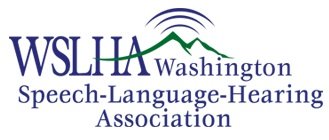Speech learning starts in the womb and a critical amount of learning already happens before infants turn age 1. My lab conducts research that helps us understand whether and how speech learning during the first year of life can be predictive of later language acquisition and if there are strategies that we can use to help improve speech learning during this period. In a most recent study (Zhao, Boorom, Kuhl & Gordon, 2021), we have demonstrated that how infant brains process speech at 11 months of age is highly predictive of their individual grammar skills at 6 years of age, measured with SPELT-3. More importantly, we were able to identify children who exhibited atypical language development at 6 years of age based on their infant brain data. We are currently conducting a large-scale study to further understand early signs of atypical language development in infant brains, with the hope to improve early diagnosis and early intervention. On the other hand, infant speech learning before the age of 1 is highly malleable by environmental factors, such as the quantity and quality of speech input. In a series of studies (Zhao & Kuhl, 2016, Zhao, Llanos, Chandrasekaran, & Kuhl, 2022), we have shown that even a lab-based music intervention affects infant speech learning. The goal of the course is to give an overview of the state-of-the-art neuroscience research in infant speech learning, and to discuss potential ways to incorporate research findings into SLP clinical practice.
Cost: WSLHA Members - $35 | WSLHA Non-Members - $50 | ASHA CEU Members - $5 | ASHA CEU Non-Members - $7
This program will NOT be recorded for later viewing.
Learning Objectives:
Describe what the sensitive period for phonetic learning is and its importance in language development.
Describe what a mismatch response (MMR) is and how to measure it.
Describe what a randomized controlled trial is and its importance in research.
Meet the Speaker: Christina Zhao
Christina Zhao, Ph.D. is currently a Research Assistant Professor in the Department of Speech and Hearing Sciences at the University of Washington with affiliations in Department of Linguistics, the Neuroscience Undergraduate Program and the eScience Institute. Her background and research program are at the intersection of many disciplines, including Psychology, Music Cognition, Speech and Hearing Sciences, Neuroscience, Linguistics and Data Science. Her expertise lies within neurophysiological measures using M/EEG in infants in response to complex auditory signals such as speech and music. She has been the PI on multiple NIH awards, investigating the neural mechanisms related to speech and music processing in infants, especially on applications in language delay and disorders.
Financial Disclosure: Research reported in this publication was supported by grants from the National Institutes of Health under Award Number R01DC020419 (PI: Zhao) and DP2HD098859 (PI: Gordon), a center grant from the National Science Foundation SMA-0835854 (PI: Kuhl) as well as the Ready Mind Project at UW I-LABS.
Non-Financial Disclosure: Christina is personally interested in music as a trained musician.
Introductory Level – 0.15 ASHA CEUs
ASHA CE Provider approval and use of the Brand Block does not imply endorsement of course content, specific products or clinical procedures.
WSLHA charges a processing fee of $5.00 for ASHA CEUs ($7.00 non-members).
OSPI Clock Hours – 1.5 hours. OSPI clock hours available by registering and paying for hours with the ESD113. Link is coming soon.
Credits and clock hours must be purchased prior to the program. Any requests for credits/hours after the date of each workshop will be denied.
All clock hours must be purchased prior to the event and separately through the ESD 113






